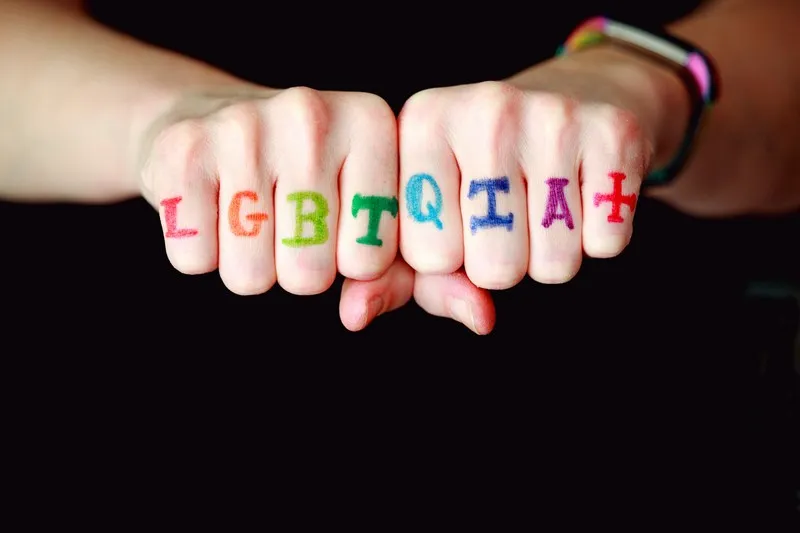Table of Contents
- Historical Context of Homophobia
- Psychological Underpinnings of Homophobia
- Social Consequences of Homophobia
- Forms of Homophobia
- Combating Homophobia
- Conclusion
Homophobia is a complex and multifaceted phenomenon characterized by a range of negative attitudes, feelings, and behaviors toward individuals who identify as or are perceived to be lesbian, gay, bisexual, or queer (LGBTQ). This term encompasses both overt hostility and subtle forms of discrimination and prejudice. Homophobia not only affects those who identify as LGBTQ but also has broader social implications, influencing societal norms, cultural practices, and institutional policies. Understanding homophobia requires a deep dive into its historical roots, psychological underpinnings, social consequences, and the various forms it takes in contemporary society.
Historical Context of Homophobia
Homophobia, like many forms of prejudice, has deep historical roots. In many cultures throughout history, same-sex relationships were often stigmatized and criminalized. For instance, in Western societies, negative attitudes towards homosexuality can be traced back to Judeo-Christian religious teachings that condemned such practices. The medieval period in Europe saw the codification of these religious beliefs into secular laws, leading to the persecution of individuals engaged in same-sex relations. This historical context is crucial for understanding how deeply ingrained homophobic attitudes can be and how they have been institutionalized over time.
In the 19th and early 20th centuries, the rise of modern science and psychology introduced new dimensions to the understanding of sexuality. Homosexuality was pathologized, with medical professionals labeling it as a mental disorder. This period saw the development of conversion therapies and other harmful practices aimed at “curing” homosexuality. The historical stigmatization of LGBTQ individuals laid the groundwork for contemporary forms of homophobia, which continue to evolve and adapt in response to changing social norms.
Psychological Underpinnings of Homophobia
The psychological dimensions of homophobia are multifaceted and can be understood through various theoretical lenses. One prominent theory is the psychoanalytic perspective, which suggests that homophobia may stem from unresolved internal conflicts related to one’s own sexual identity. According to this view, individuals who harbor strong homophobic attitudes may be projecting their own repressed homosexual desires onto others, resulting in outward hostility.
Another psychological perspective is the social learning theory, which posits that homophobic attitudes are learned through socialization processes. From a young age, individuals are exposed to cultural norms and values that shape their understanding of acceptable behavior. Family, peers, media, and educational institutions play significant roles in transmitting these norms. If these socializing agents endorse negative views of homosexuality, individuals are likely to internalize these attitudes and exhibit homophobic behavior.
Cognitive theories also offer insights into the psychological mechanisms underlying homophobia. According to cognitive dissonance theory, individuals experience discomfort when they hold conflicting beliefs or attitudes. For some, encountering LGBTQ individuals may challenge deeply held beliefs about gender and sexuality, leading to cognitive dissonance. To alleviate this discomfort, individuals may adopt homophobic attitudes as a way to reinforce their preexisting beliefs and reduce the psychological tension.
Social Consequences of Homophobia
Homophobia has far-reaching social consequences that affect not only LGBTQ individuals but also society as a whole. One of the most immediate impacts is the marginalization and discrimination faced by LGBTQ individuals. This can manifest in various forms, including verbal harassment, physical violence, and systemic discrimination in areas such as employment, housing, and healthcare. The fear of being targeted often leads LGBTQ individuals to conceal their sexual orientation, which can have detrimental effects on their mental health and well-being.
At the societal level, homophobia perpetuates inequality and social divisions. It reinforces rigid gender norms and expectations, limiting individuals’ ability to express their identities freely. This, in turn, contributes to a culture of conformity and intolerance, where deviations from normative behavior are met with suspicion and hostility. Homophobia also hinders social cohesion by fostering an environment of exclusion and prejudice, which can erode trust and mutual respect among community members.
The impact of homophobia extends to public health as well. LGBTQ individuals who experience discrimination and stigma are at a higher risk of mental health issues, including depression, anxiety, and suicidal ideation. Additionally, homophobia can create barriers to accessing healthcare services, leading to poorer health outcomes. For example, fear of discrimination may deter LGBTQ individuals from seeking medical care, resulting in delayed diagnoses and treatment.
Forms of Homophobia
Homophobia manifests in various forms, ranging from overt acts of violence to subtle expressions of prejudice. Understanding these different forms is essential for developing effective strategies to combat homophobia and promote inclusivity.
Overt Homophobia
Get the full article AD FREE. Join now for full access to all premium articles.
View Plans & Subscribe Already a member? Log in.





